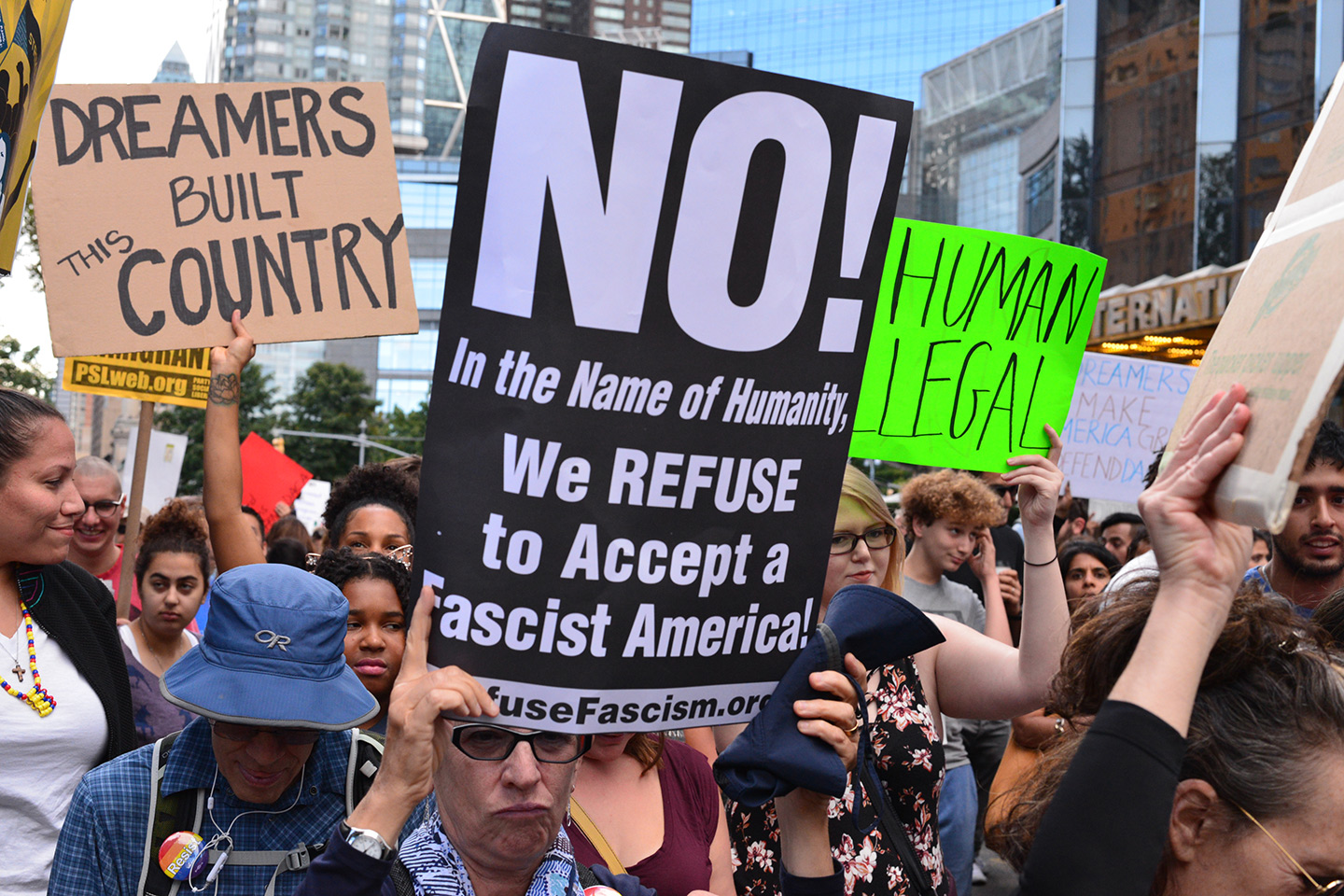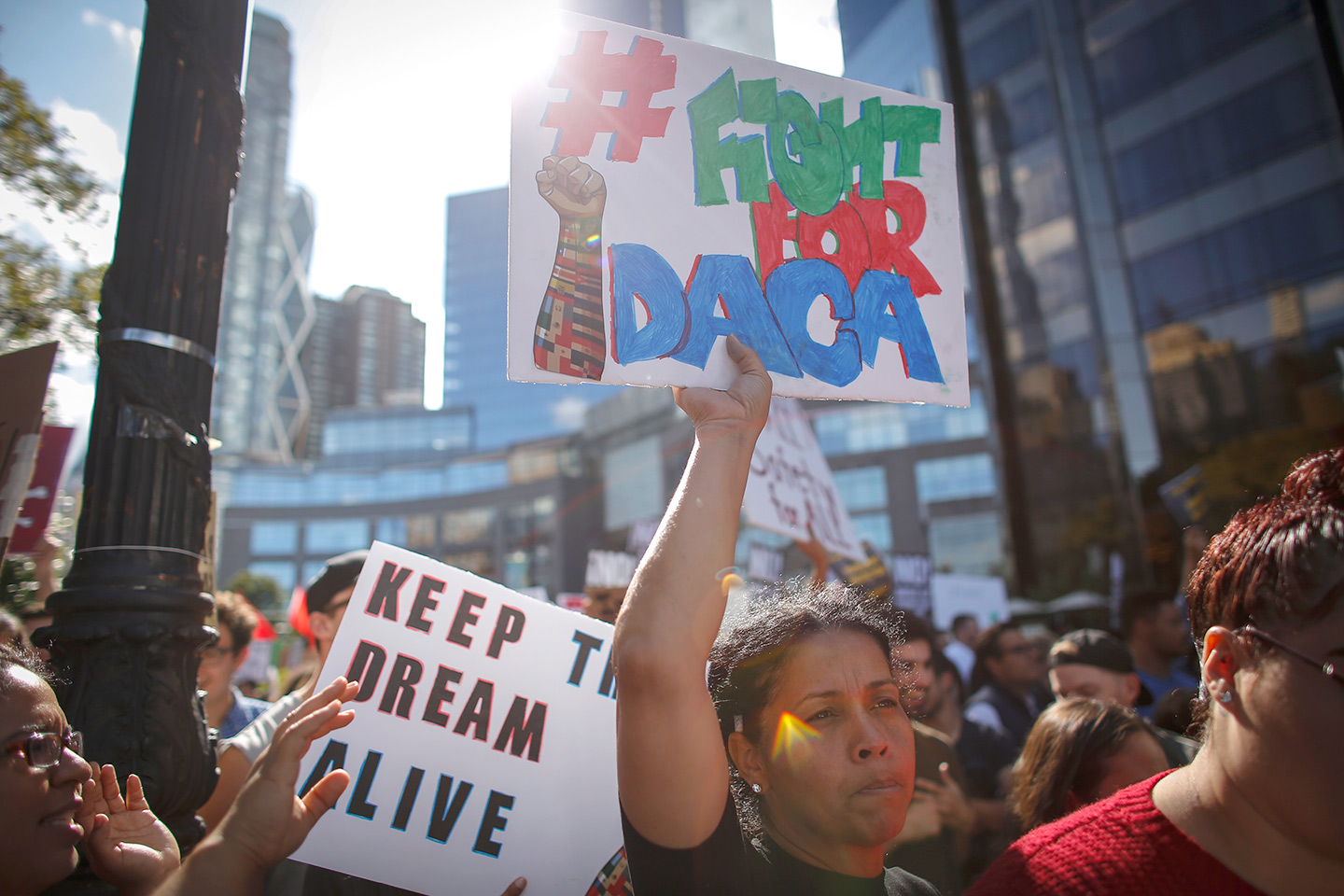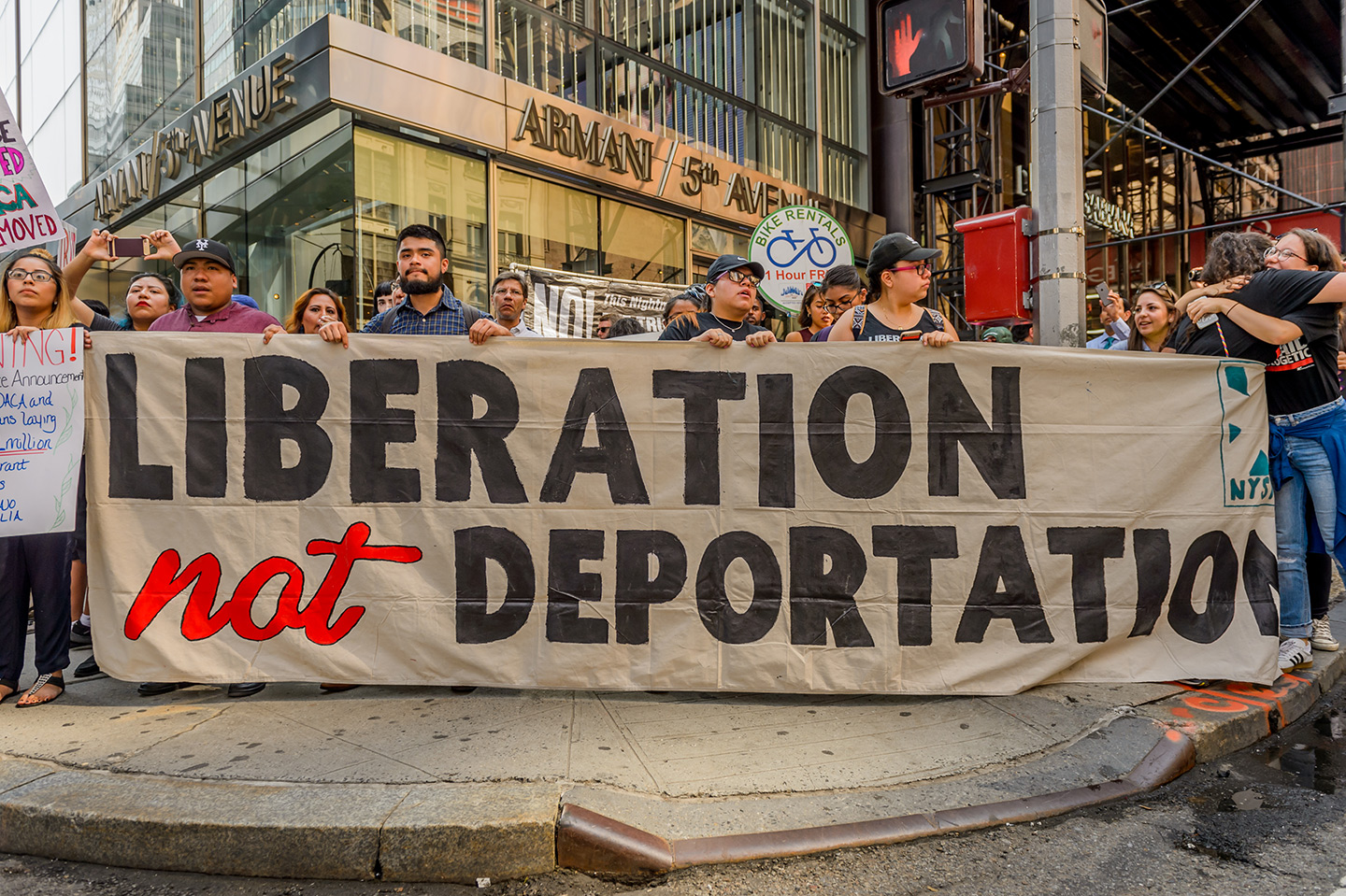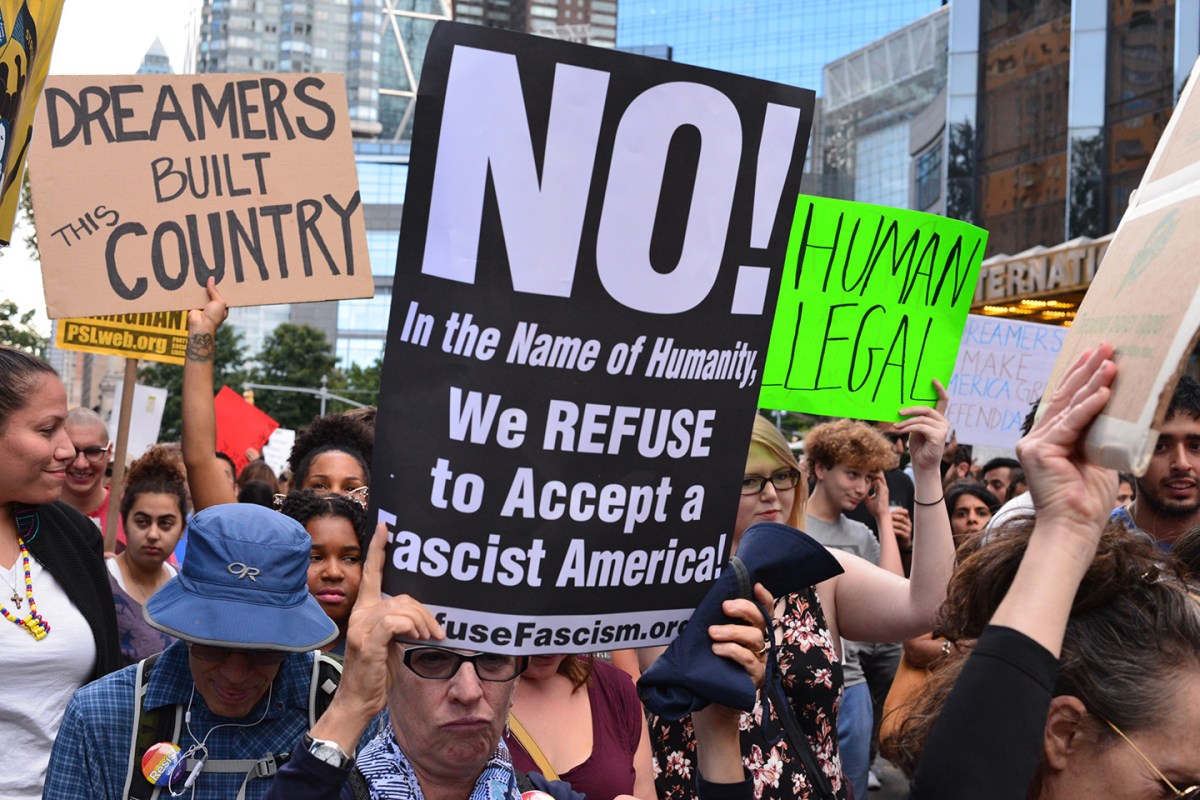Santiago Medina was only five years old when his parents packed up their life in Mexico and came to America with the hope of giving their two sons better life. No one in the family had ever gone to college, and Medina grew up watching his parents struggle to keep their growing family — Medina now has six brothers and one sister — afloat.
So Medina, 26, decided to follow in his parents’ footsteps and work hard to make something of himself in the country he has called home for as long as he can remember.
“It was always kind of hard for me growing up being illegal,” Medina told RealClearLife. “Especially because in high school, out of a class of 500 students, I was number one on the academic list and I was supposed to get a full ride to college but because I didn’t have a social security number, I didn’t receive the money.”

Medina is just one of more than 700,000 undocumented immigrants whose lives were drastically changed in 2012 when former President Barack Obama announced his executive order on Deferred Action for Childhood Arrivals, or DACA. The law protects immigrants who came to the U.S. when they were 16 or younger from deportation and authorizes them to work in the United States. It made recipients, known as Dreamers, eligible to obtain driver’s licenses and the ability to afford college more easily. According to the Cato Institute, 17 percent of DACA recipients are on track to complete an advanced degree.
“It was difficult, but the DACA act pushed me toward going back (to school), and also because of the job that I got, I was able to get paid more,” Medina said. “DACA really gave me the opportunity to do all that.” Medina is now the father of two, is back in school and is set to graduate from Texas Tech University in May 2018 with a degree in civil engineering. He has already started interviewing for a job after graduation.
But last month, Medina’s world was turned upside down. On September 5, Attorney General Jeff Sessions announced that DACA was an “unconstitutional exercise of authority” and was being rescinded. President Donald Trump later tweeted “If Congress does not “legalize DACA” in six months, I will revisit this issue!” As of now, the Trump administration will stop renewing DACA work permits in six months. This delay is supposed to get Congress to pass legislation that would allow the Dreamers to stay in the country legally.
For all of those (DACA) that are concerned about your status during the 6 month period, you have nothing to worry about – No action!
— Donald J. Trump (@realDonaldTrump) September 7, 2017
Congress now has 6 months to legalize DACA (something the Obama Administration was unable to do). If they can’t, I will revisit this issue!
— Donald J. Trump (@realDonaldTrump) September 6, 2017
“DACA is merely a protection from deportation,” said Ali Noorani, executive director of the National Immigration Forum, told RealClearLife. “It is not a permanent path to citizenship.”
Today is the final day for recipients whose DACA protections are set to expire before March 5 to reapply for one last renewal. Anyone who is set to lose their protections on March 6 or later is out of luck, and will fall back into unauthorized status.
According to a study by FWD.us, 91 percent of DACA recipients are employed. The study estimates that roughly 30,000 people a month would lose their work permits as their DACA status expires.
Research shows that rescinding DACA and deporting Dreamers recipients would not only turn the lives of thousands of families upside down, but it would drastically impact the United States economy.

DACA allows recipients to aim for employment opportunities other than low-wage jobs that don’t require official paperwork. The Center for American Progress writes that when people are can legally work and live without fear of deportation, they benefit from more opportunities to find jobs that match their skillsets, and will be more “economically productive.” Adam Cox, a law professor at New York University, claims that when people are allowed to work legally, they also become less vulnerable to things like workplace exploitation or wage theft.
“[H]igher wages translate into higher tax revenue and economic growth” and one study shows a loss of DACA workers would reduce U.S. gross domestic product by $433 billion over the next 10 years, according to the Center for American Progress.
Leezia Dhalla, a communications associate at FWD.us told RealClearLife that when most people think about removing immigrants, they think about removing people who are new or have true criminal records. But with DACA, Dhalla said, “we’re removing people who have very long-standing ties to the community.”

Dhalla, incidentally, immigrated from Canada with her family in October 1996, and she celebrates the anniversary of that move every year. She said that the entire trajectory of her life is about “being here and contributing here and being able to make a difference here.”
Since most DACA recipients do not know another home outside of the United States, they are investing in their lives here. According to the Center for American Progress, 21 percent of respondents in one study reported buying their first car after receiving DACA. Ninety-six percent of those who said they bought a car also bought insurance. Meanwhile, 12 percent of respondents purchased their first home after receiving DACA, at an average cost of $167,596. Since DACA allows recipients to have driver’s licenses or state IDs, people can get credit cards and start bank accounts.
Apolinar Islas is a 34-year-old Dreamer who has lived in New York since he was 15 when his family moved from Mexico. He has an associates degree in liberal arts from Borough of Manhattan Community College. He is currently pursuing a double major in Spanish and Journalism with a concentration in Creative Writing and a minor in translation from Baruch College. Islas has a part-time job (that he did not feel comfortable disclosing to RealClearLife due to the political climate) and he is writing his first novel.
“We are an important asset to the nation because we are productive and have the ambition to improve this society,” Islas told RealClearLife in an email interview. “Every morning as we wake up, and go to school, and go to work, and go to volunteer, and go anywhere we have to go to better this country and the world.”
Almost all the DACA recipients RealClearLife spoke to for this story are at risk of being deported starting March 6. Most of them have not planned for this possibility, because their lives, families, jobs, kids, community, are all here. For Dhalla, “leaving was never part of the plan.”
“There is no way to plan having your life uprooted because of an immigration system that is broken, that doesn’t allow you to go through a process,” Dhalla told RealClearLife during a phone interview. “It is crazy that there have been people here for 30 years and they can’t go through a process.”

Cox said that it is important to remember that if Congress does not come up with another solution, all these people are not going to “pick up and depart.”
“There is no world in which immigration policy is going to force all those people living here without documentation to leave,” Cox said.
As for Medina, he is worried about his future career. He believes he can make a stronger impact on the U.S. economy and his community if he is given the opportunity to start his own company, which is his dream. He said that he would be “just as lost in Mexico as anybody” and doesn’t know where his family would go if they were deported back.
“We’re not accepted here but we can’t go back, so I don’t know what we’re supposed to do,” he said. “You just have to give everybody an opportunity and something good will come.”
Diana Crandall contributed to this story.
Editor’s Note: This article previously stated DACA started in 2015, when it started in 2012. The article has been updated.
This article appeared in an InsideHook newsletter. Sign up for free to get more on travel, wellness, style, drinking, and culture.
























